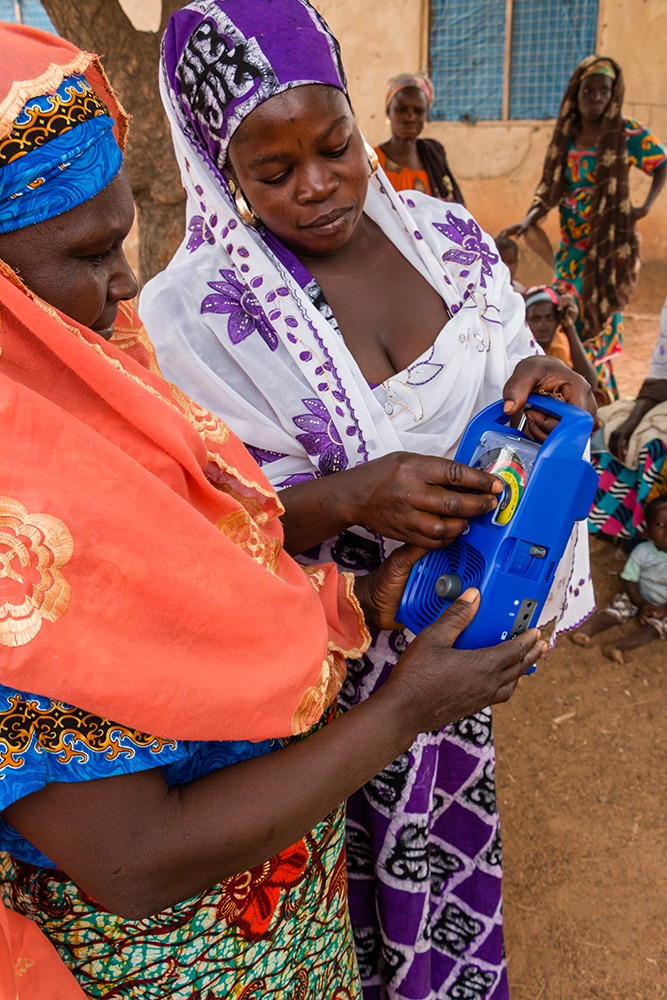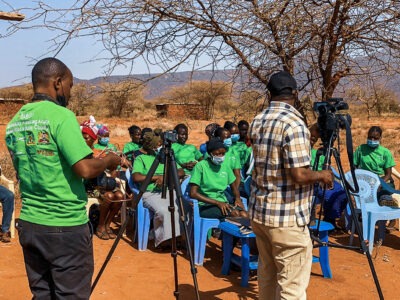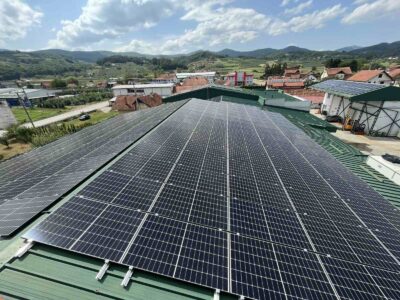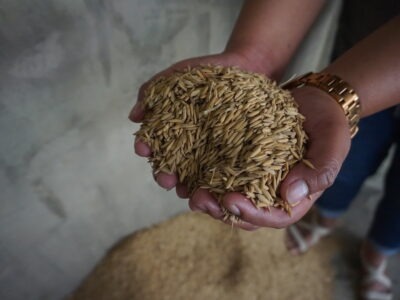
Through radio programming, USAID ADVANCE is introducing some 25,000 smallholder farmers to innovative technologies and agricultural best practices, including row planting, appropriate seeding rate, proper use of fertilizer and other chemicals, the use of improved high-yield seeds, and inoculants and chemicals. These techniques improve soils and increase yields, and subsequently farmers’ incomes. The project, led by ACDI/VOCA and supported by Technoserve, ACDEP, and PAB Consult, is a key part of the Feed the Future initiative in Ghana. It is on target to reach over 100,000 maize, rice, and soybean smallholder farmers to achieve greater food security.
ADVANCE gathers its smallholder-farmer participants at demonstration sites to teach them about innovations and best practices. To complement what farmers see at the demonstration sites and to remind them of these best practices, USAID ADVANCE has partnered with radio stations to air agricultural programs at the farmers’ convenience with resource persons in attendance. Selected from the Ministry of Food and Agriculture, input companies, and other relevant institutions, the resource persons discuss appropriate land preparation methods, the importance of using certified seeds and where to obtain them, proper fertilizer application methods, farm management, the proper application of pesticides and disposal methods of the containers, and harvest and post-harvest technologies.
To encourage collective listening of the program and the sharing of ideas and experiences, the project has put the farmers into listenership clubs, of which 70 percent of members are women. The listenership clubs serve as a medium for technology transfer, feedback, and experience sharing. Within two years, 1,000 listenership clubs comprising 25,000 farmers across northern Ghana have been formed and supplied with radio sets by USAID ADVANCE. Members gather around their radio sets to listen when the programs air. The programs are structured in a way that allows farmers to phone in to share their experiences and also ask for further explanations on specific issues.
“We women cannot own radio sets but now we can meet as a group and listen to agricultural programs thanks to the radio sets that ADVANCE has given us. We are busy during the day so we cannot listen to the agricultural program. Now that we have the radio sets we can meet at a time that is convenient for us, listen, and share ideas on the topics that are discussed on the program.” –Afia Afra, a smallholder farmer from Chiranda in Kintampo North District
The radio programs not only benefit the farmers; input dealers who also serve as resources persons are seeing the impact as well. The owner of Heritage Seeds Company, Zakaria Alhassan, is a project input dealer beneficiary who has increased sales and his clientele base due to the sharing of information of his distribution networks on radio.





